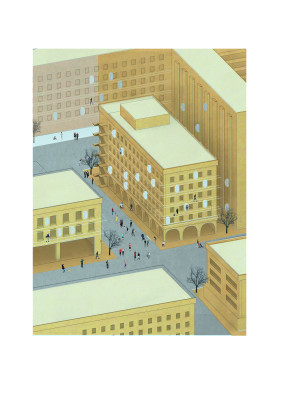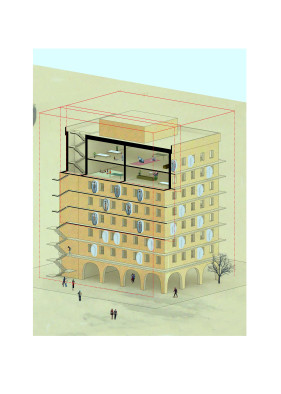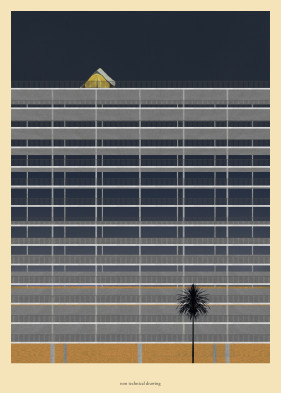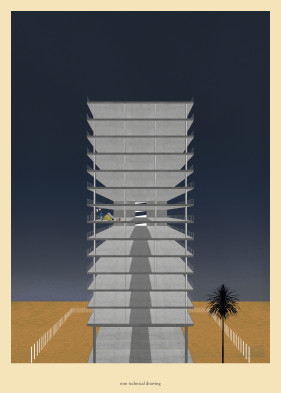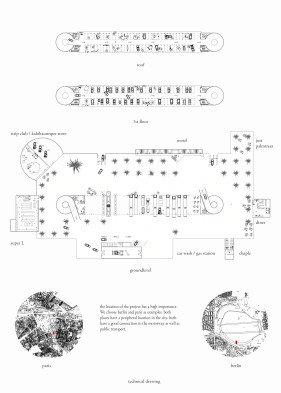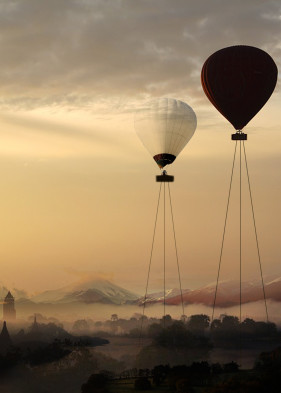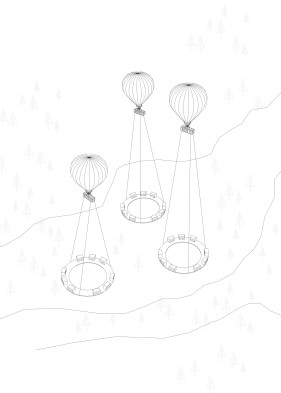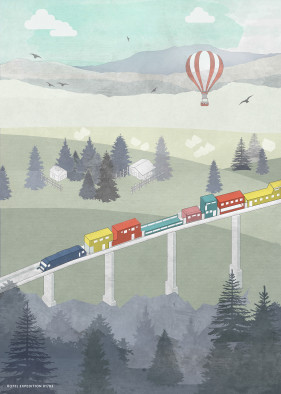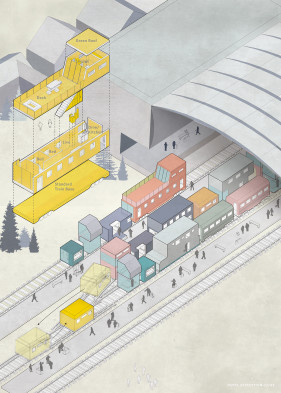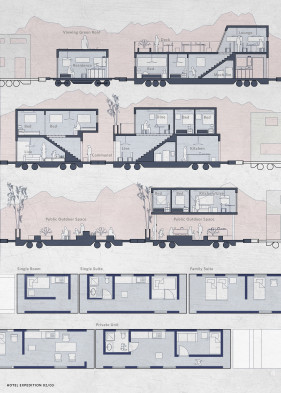TEAM: Anna Barbieri, Anna Hagen
The place where all your dreams come true.
“But for me it was enough if, in my own bed, my sleep was so heavy as completely to relax my consciousness; for then I lost all sense of the place in which I had gone to sleep, and when I awoke at midnight, not knowing where I was, I could not be sure at first who I was; (…) but then the memory, not yet of the place in which I was, but of various other places where I had lived, and might now very possibly be, would come like a rope let down from heaven to draw me up out of the abyss of not-being, from
which I could never have escaped by myself.” *1
Welcome to the Mirage. This is the place where you leave all your sorrows. This is the place where all your dreams come true. Just take a pill, relax and enjoy your stay in the hotels of desire. Choose from our wide range of hotels and dream of them with our specially developed dreaming pills.
Our hotel has been enriching our guestsʼ nocturne experiences by our high- class dreaming services since 1871. The night is our commitment. It is the dreams you will remember the most and the Mirage will grant the sweetest ones you have ever known.
The hotel industry has been focusing on a variety of different themes for hotels. It is about everything else than sleeping. The typology of a hotel is shaped by the spaces experienced before coming to the actual bedroom. Furthermore, some hotel typologies are characterised by the additional services hotels offer. The hotel room itself is basic and revolves around similar interior qualities. It is the aura of the non-bedrooms you pass that shape our ideas of hotels.
Architecture cannot be physically experienced while sleeping. Referring to Proust’s quote, the architecture of sleeping is about the memory of places. While actually sleeping, guests cannot grasp the hotel, but they can grasp the places and spaces in their dreams. Consequently, the spatial experience a hotel as a place to sleep should be focusing on, is the spatiality of the sleeping activity, thus dreaming.
Referencing Marcel Proust’s ideas on sleeping and Hans Hollein’s Everything is Architecture, Hotel Mirage reprioritises sleeping, the momentary experience of a hotel stay and the memory of dreamt places. Guests want it all: grand hotels, resort hotels, love hotels, love motels… Hotel Mirage incorporates all of them in one single place of sleeping.
Throughout, it is a basic hotel with a basic dorm, but special pills provide dreams of stays in every imaginable hotel. Guests choose the preferred or desired hotel at the reception and purchase dream-initiator pills. These guarantee smooth access to every hotel via sweet hotel dreams.
Dream your hotel. Experience it while being in a state of illusion and imagination. Architecture infiltrates your sleep.
*1-https://www.gutenberg.org/files/7178/7178-h/7178-h.htm April 29, 2016,
Marcel Proust, Swann’s Way. Remembrance of Things Past. Volume One, trans. C.K. Scott
Moncrieff (New York: Henry and Holt Company, 1922), acc










